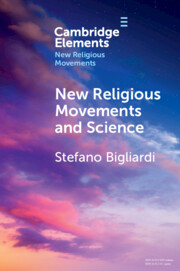Refine search
Actions for selected content:
1 results

New Religious Movements and Science
-
- Published online:
- 25 April 2023
- Print publication:
- 18 May 2023
-
- Element
- Export citation
